KAUST Core Labs advance health innovations in Kingdom, MENA region through industry partnerships
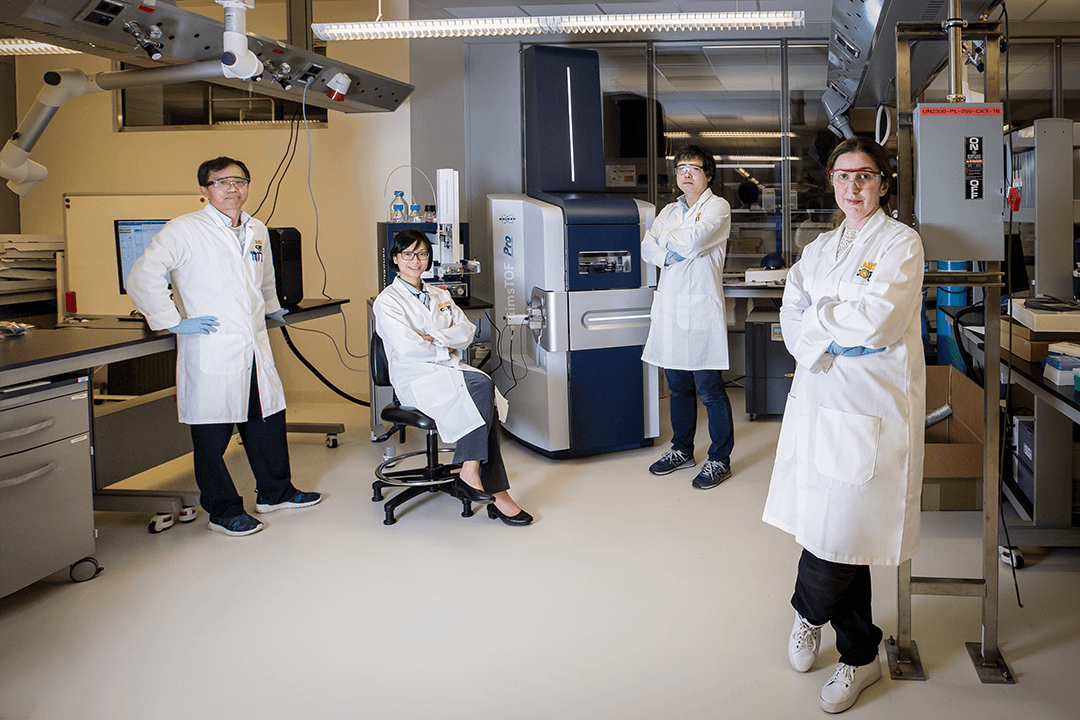
The Bioscience Core Lab team (left to right): Huoming Zhang, staff scientist; Nicole Cheung, BCL director; Kosuke Sakashita, staff scientist; and Dalila Bensaddek, team lead. Photo: KAUST / Khulud Muath
The COVID-19 pandemic heightened awareness of the need to prepare against emerging infectious diseases. The Bioscience Core Lab (BCL) at King Abdullah University of Science and Technology (KAUST) plays a key role in supporting regional and global health initiatives through industry partnerships.
BCL is part of the KAUST Core Labs, a world-class infrastructure for research innovation that provides multidisciplinary expertise, interconnected laboratories and state-of-the-art facilities in support of the University's mandate to advance scientific research and discovery in the areas of food, water, energy, health, technology and the environment. The Labs are the first of their kind in Saudi Arabia.
Accelerating research through collaboration
Nicole Cheung, BCL director, said that, unlike traditional university models, the Labs do more than meet KAUST faculty needs.
"We work with the Saudi government, regional businesses and start-ups, many of which do not have access to, or expertise in these technologies. With these entrants, we see ourselves as a gateway that enables Saudi and global scientists to gain access to some of the latest high-end technologies, instrumentation and expertise," she said. "Our staff scientists and technicians work hard to keep themselves up to date with the latest developments in order to help lab users flourish."
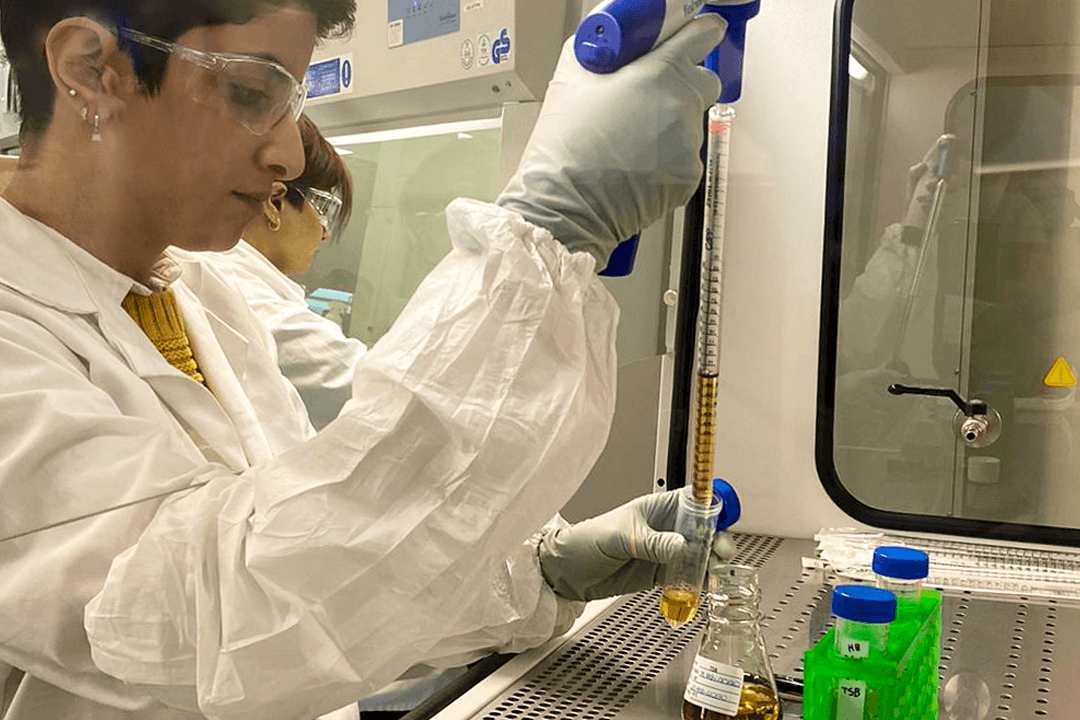
SaudiVax scientists are partnering with the KAUST Core Labs to research therapeutic treatments and vaccines for COVID-19 and MERS. Photo: KAUST
Collaborators range from small businesses to larger enterprises. Saudi-based biotechnology company
SaudiVax is one such partner. BCL works closely with the SaudiVax team to develop and manufacture vaccines as well as monoclonal antibodies. The vaccine and advanced treatment industries are strategically important for Saudi Arabia, as millions of pilgrims visit from around the world annually.
SaudiVax is the first vaccine manufacturing company in the Kingdom. BCL is instrumental in providing expertise to SaudiVax for the development of vaccines tailored to the specific needs of Saudi Arabia and the MENA region, principally for respiratory diseases such as MERS, known as the camel flu, and now potentially COVID-19. SaudiVax patents include hybrid antibodies from mice and humans. It is working with Cytiva, a global life sciences leader, to install biologics in the region, with preparations to begin the production of halal flu vaccines in 2022.
In addition to its flu vaccine, SaudiVax has joined KAUST in a partnership to research and license a new preventative drug that targets the SARS-CoV-2 virus in the Middle East — a challenging project in which the support of BCL is a perfect fit.
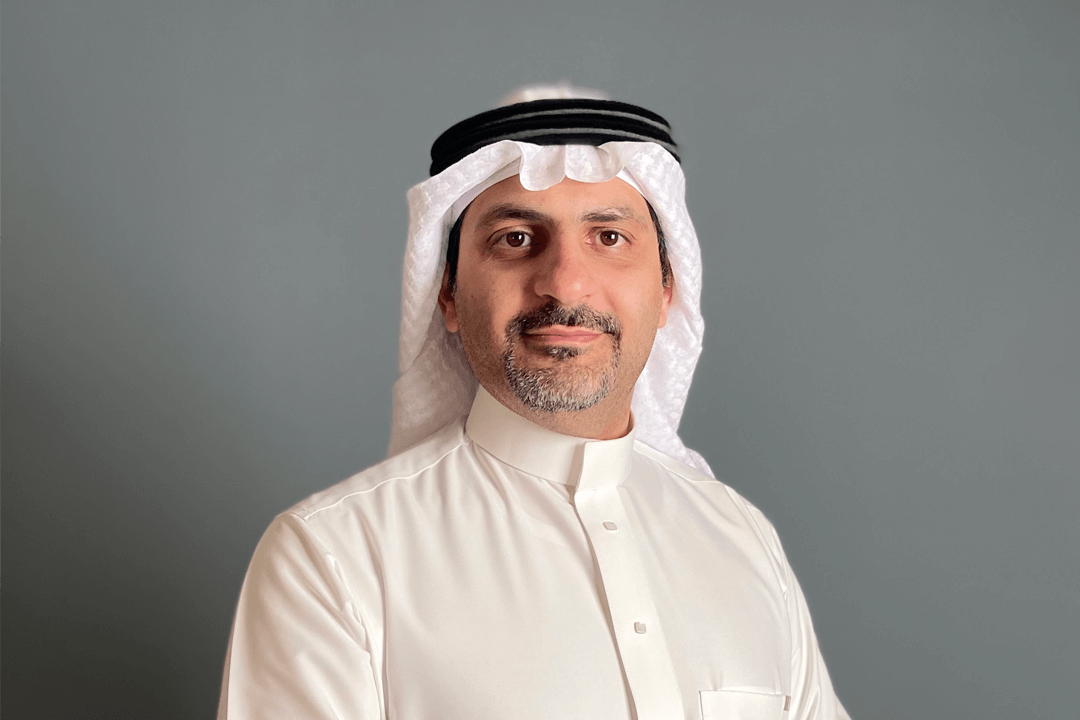
Mazen M. Hassanain, managing director of SaudiVax, a biotechnology company focused on developing and manufacturing vaccines and monoclonal antibodies. Photo: KAUST
Dr. Mazen M. Hassanain, managing director of SaudiVax, said the inspiration for the creation of SaudiVax was to develop global solutions accessible to the Middle East region.
"There is a great, unmet need globally for vaccines and biologics to protect against infectious disease and support global health. In this region, we need strategic partnerships and investment in the local discovery, development and manufacture of vaccines and therapeutics," he said. "Our collaboration with the KAUST Core Labs came naturally given our pre-existing relationships and the University's unmatched regional expertise."
The Bioscience Core Lab: Building on success
In order for a vaccine or antibody to be licensed for use as a therapeutic agent, it must pass several quality control checks, safety checks and thorough characterization in order to secure intellectual property rights. BCL works hand-in-hand with companies such as SaudiVax to provide quality expertise and facilities and ensure a smooth process.
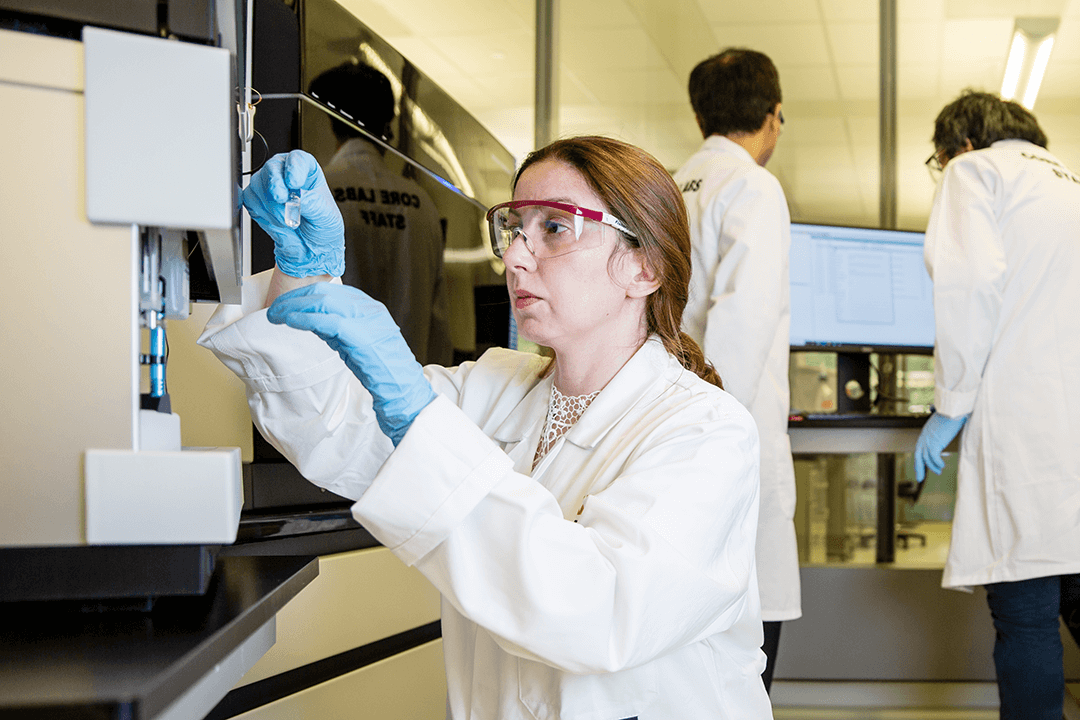
Dr. Dalila Bensaddek, team lead at KAUST Bioscience Core Lab, partners with the SaudiVax team to study therapeutic monoclonal antibodies and methods for vaccine development. Photo: KAUST / Khulud Muath
For example, once SaudiVax successfully cultures its antibodies, BCL scientists apply proteomics (the study of an organism's proteins) to identify and obtain full coverage of specific amino-acid sequences used in the making of monoclonal antibodies. Dr. Dalila Bensaddek, a team lead at BCL, works closely with SaudiVax scientists. With a background in chemistry, she specializes in biological mass spectrometry, a technique used to identify and quantify proteins in organisms.
"It is very important to obtain full coverage of the sequence of the antibody to rule out any residue substitution or deviation from the desired sequence" she said. We have combined a wide range of enzymes with varying specificities to capture the full sequence in a single analysis, thus saving time and sample requirements. This approach has successfully been used to make a monoclonal antibody for treating respiratory syncytial virus (RSV) in premature children."
Bensaddek spoke about the increasing role antibodies will play in transforming the future of infectious disease research.
"The potential for antibodies to act as 'magic bullets' to treat human disease was recognized more than a century ago, with immune animal sera used in the late 1800s," she said. "Today, monoclonal antibody (mAb) technology is a thriving area of research. During the last three decades, thirty therapeutic monoclonal antibodies were licensed for the treatment of cancer and also several immune diseases. Of these, only two were for infectious disease indications."
In another important development that localizes expertise in the Kingdom, BCL has helped SaudiVax establish an optimized, robust analytical method for downstream vaccine production — a process of recovering and purifying the biomaterials. The new method has become an essential part of the company's standard operating procedure. BCL has worked with many startups to develop such methods, and provides valuable training to scientists on its equipment for performing various tasks.
Academic-industry collaborations stimulate regional innovation
The idea of collaboration between academia and industry is not new, but with the increasing need to find rapid solutions to complex global challenges, and given that few organizations have the capacity to deliver results on their own, these partnerships have become more important than ever.
Since its inauguration more than a decade ago, KAUST has been a center of innovation in the Kingdom of Saudi Arabia, developing successful academic and industry partnerships, attracting more than 50 companies to reside on campus, and supporting more than 250 startups.
Dr. Daniel Acevedo-Feliz, BCL interim executive director, said, "Our goal is to make a greater contribution to the region's scientific community by helping to translate research into biopharmaceuticals that can be tested in clinical trials and manufactured into marketable products. The collaboration is a great example of a successful university-industry partnership in addressing global challenges. We hope to develop more partnerships such as this in the near future."
This area has become a strategic University focus following the launch of its Smart Health Initiative, which supports and promotes translational health research programs through collaborations between KAUST scientists and clinicians in Saudi Arabia.
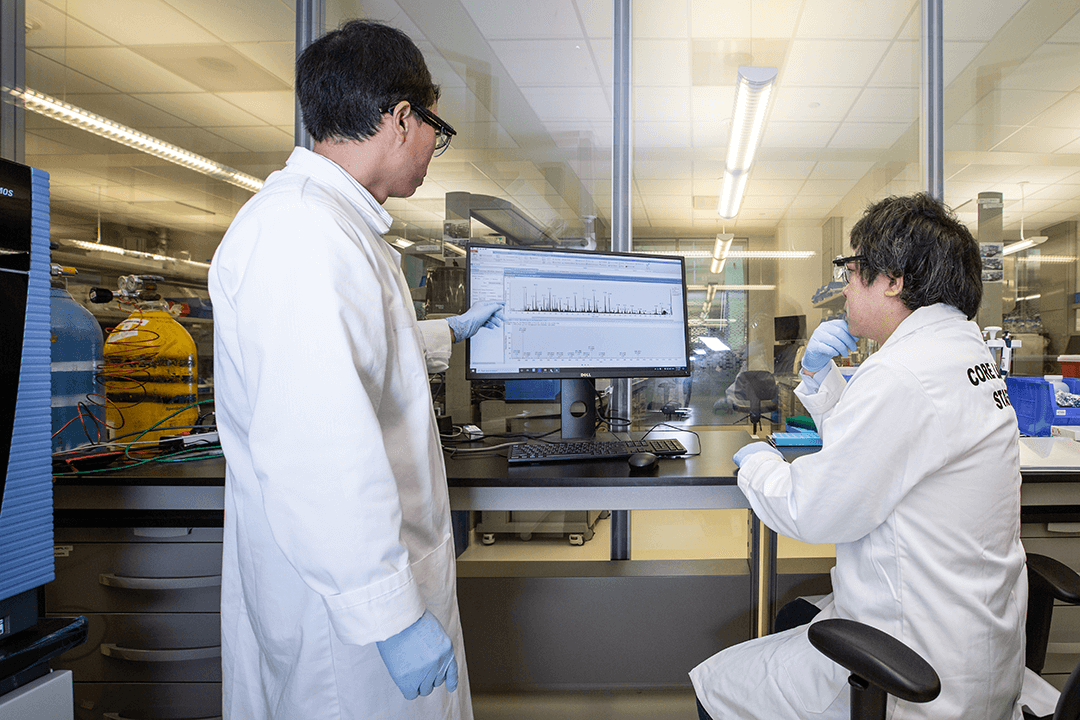
KAUST Bioscience Core Lab scientists from the Proteomics and Protein Expression team characterize enzymes for therapeutic treatments. Photo: KAUST / Khulud Muath
Reflecting on the potential role of SaudiVax and the Core Labs in future vaccine markets, Dr. Hassanain underscored that collaboration is key. "We need universities and technology transfer to succeed. No matter how strong any one entity is, a lack of collaborative integration limits the ability to make a significant impact. Synergy is essential for achieving collective goals."